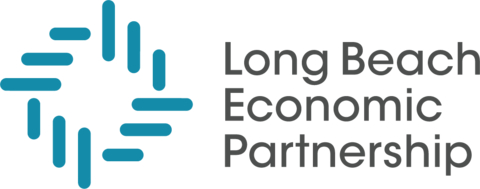Long Beach Economic Partnership and World Trade Center Long Beach Sponsor 12th Annual Global Supply Chain Excellence Summit
Long Beach Economic Partnership and World Trade Center Long Beach Sponsor 12th Annual Global Supply Chain Excellence Summit
Marking its first-ever appearance outside of USC's campus, the Summit presented an innovative platform for industry leaders and public officials to chart a course toward a more resilient, agile, and sustainable supply chain ecosystem.
LONG BEACH, Calif.--(BUSINESS WIRE)--Long Beach Economic Partnership (LBEP) and World Trade Center Long Beach (WTCLB) were honored to sponsor the 12th Annual Global Supply Chain Excellence Summit for its first-ever appearance outside of USC's campus. The summit took place at Marriott Long Beach Downtown on August 15-16, 2024.
Themed Supply Chain 2030: Exploring the AI-Driven, Resilient, Agile, and Sustainable Frontier, the summit brought together a diverse group of thought leaders, industry pioneers, and public sector champions to discuss the current state of affairs and the future of global supply chains in an era of rapid transformation.
"Having the World Trade Center Long Beach once again in the forefront of critical trade and logistics conversations is another significant milestone for the organization,” said Felipe Cusnir, Executive Director. "Partnering with the USC Marshall School of Business Randall R. Kendrick Global Supply Chain Institute, the Ports of Long Beach and Los Angeles, and many private sector leaders shows how effective we are in forging alliances to upgrade our supply chain and enhance the region's competitiveness.”
One of the highlights of the summit was the emphasis on the extensive capital improvement programs underway at both the Port of Los Angeles and the Port of Long Beach. These initiatives aim to make Southern California’s supply chain infrastructure cleaner, more efficient, more resilient, and more reliable with projects such as the Pier B On-Dock Rail Support Facility, green shipping corridors, and the POLA/POLB Clean Air Action Plan. Additionally, the ports are gearing up to build 100 public charging stations by 2028 to support this ambitious transition.
The summit addressed a wide array of challenges and opportunities facing the supply chain ecosystem, including advancements in AI, digital transformation, and sustainability. Keynote speakers like Dr. Noel Hacegaba (Port of Long Beach), Gene Seroka (Port of Los Angeles), and Dr. Nick Vyas (USC) underscored the need for a collaborative approach to building resilient and sustainable supply chains.
Panels offered insights into best practices across the industry, such as AI-driven shipping predictions and food supply chain traceability. In particular, the Food Supply Chain & Traceability panel stressed the importance of compliance with U.S. forced labor laws and sustainability standards, providing a framework for how companies can ensure the integrity and safety of their products from farm to table.
The summit was deemed a remarkable success, and LBEP and WTCLB were proud to be part of this critical conversation. They were joined by their partners and friends Bonnie Lowenthal (Long Beach Harbor Commission), John Keisler (Sunstone Management), Vince Iacopella (Alba Wheels Up), Bonnie Nixon (Long Beach Container Terminal), and John Vestal (C.H. Robinson), engaging in meaningful discussions and networking that sparked new ideas and collaborations.
About Long Beach Economic Partnership (LBEP)
LBEP is a non-profit, action-oriented organization that works to grow the economy of Long Beach and expand citywide economic opportunities with a global vision. This is achieved through locally focused partnerships, newsworthy events, and other actions that will deliver on their vision for dependable growth. LBEP works directly with companies to understand their needs and assist them in their success, providing business services ranging from site selection to incentive programs, industry-focused initiatives, and talent pipeline development.
About The Randall R. Kendrick Global Supply Chain Institute
The USC Marshall Randall R. Kendrick Global Supply Chain Institute (Kendrick GSCI) exists to help predict, mitigate, and alleviate supply chain disruptions and risks, capitalizing upon their global network, industry experience, and renowned faculty, through Network, Education, and Advanced Research (NEAR). The Institute is cultivating innovative, critical-thinking, and resilient student leaders in a digitally transformative, data-driven supply chain ecosystem delivering triple-bottom-line results: agility, resiliency, and sustainability.
Contacts
Kyrian Corona
Shiny Object Co.
kyrian@shinyobjectco.com
Mobile: + 1-818-642-5895
